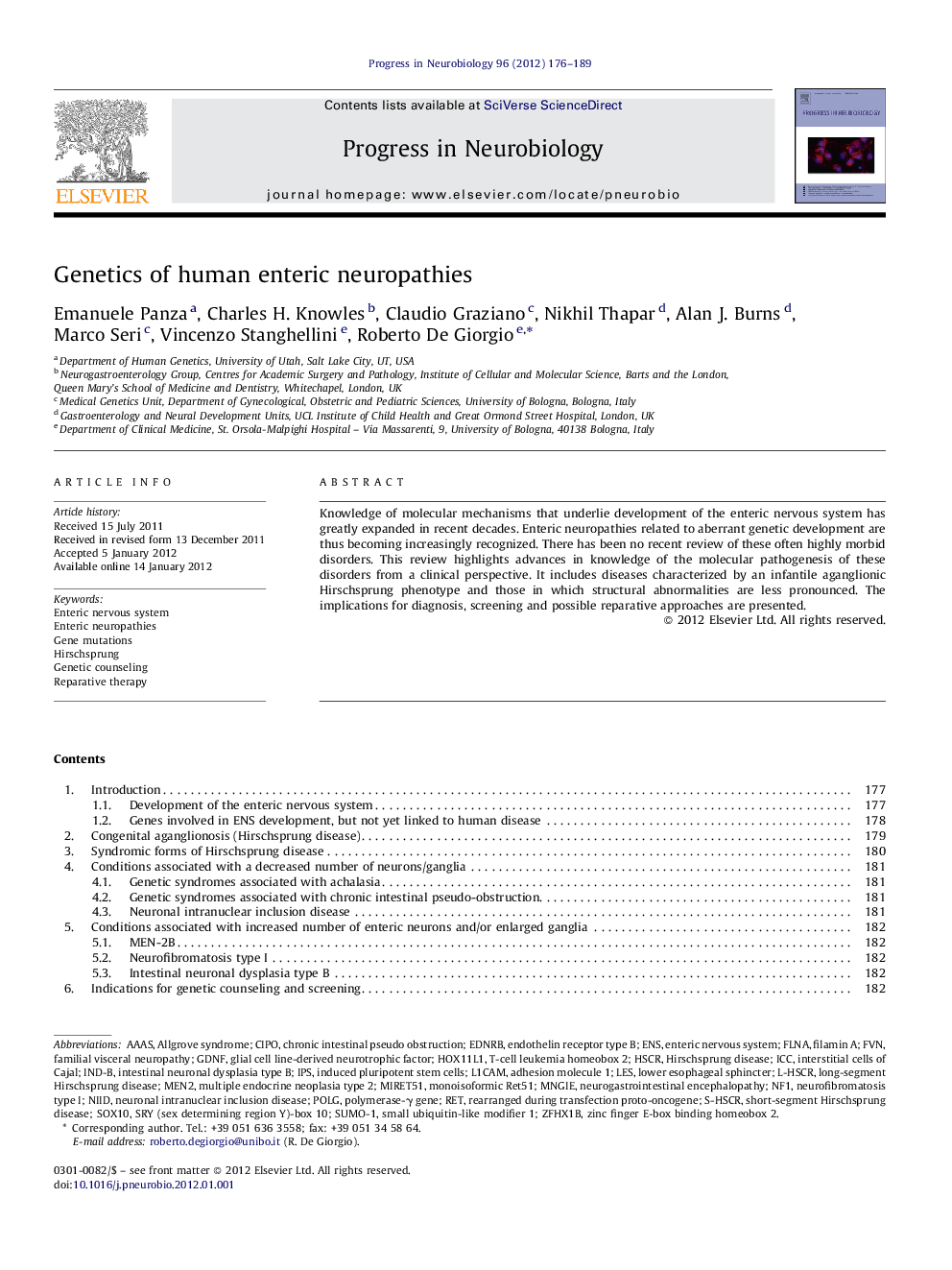| Article ID | Journal | Published Year | Pages | File Type |
|---|---|---|---|---|
| 4353427 | Progress in Neurobiology | 2012 | 14 Pages |
Knowledge of molecular mechanisms that underlie development of the enteric nervous system has greatly expanded in recent decades. Enteric neuropathies related to aberrant genetic development are thus becoming increasingly recognized. There has been no recent review of these often highly morbid disorders. This review highlights advances in knowledge of the molecular pathogenesis of these disorders from a clinical perspective. It includes diseases characterized by an infantile aganglionic Hirschsprung phenotype and those in which structural abnormalities are less pronounced. The implications for diagnosis, screening and possible reparative approaches are presented.
► Enteric neuropathies of genetic origin are mostly rare. ► Disorders may be characterized by a histological phenotype in which enteric nerves and ganglia are absent (Hirshsprung disease and related syndromes), reduced or increased. ► Clinical phenotypes span all gastrointestinal regions and are generally associated with high morbidity. ► Clinical diagnosis may be complimented by appropriate genetic testing. ► Accurate diagnosis has implications for genetic counseling and reparative therapies.
